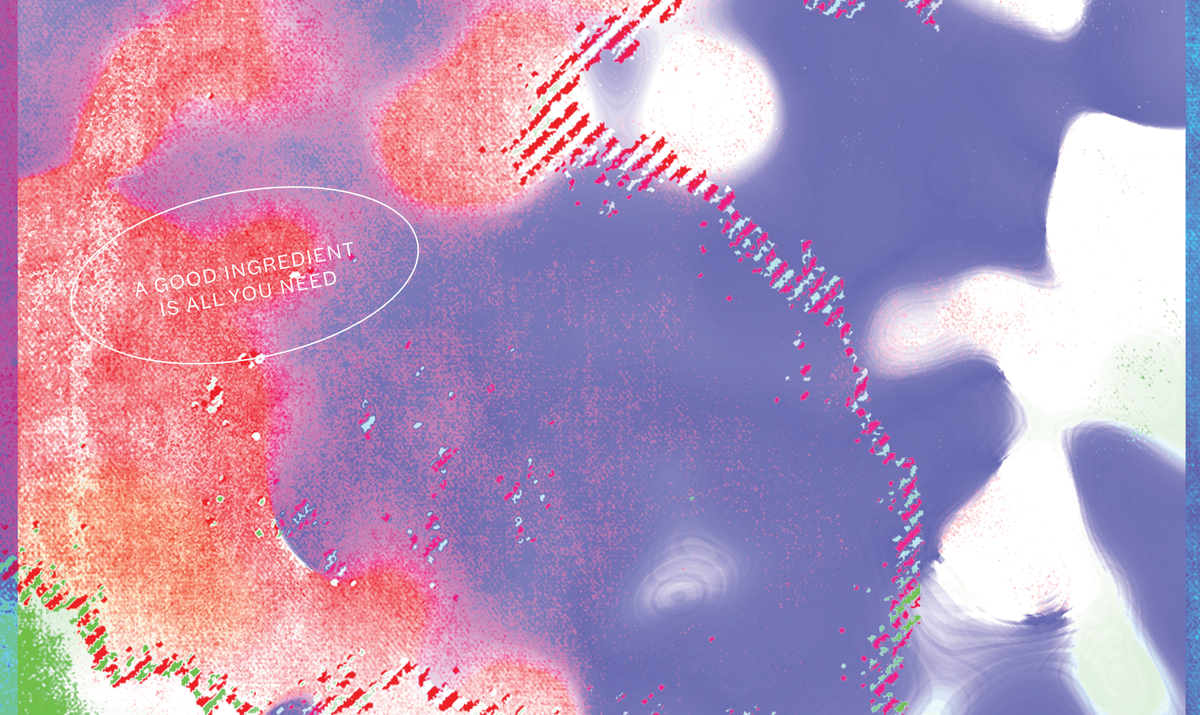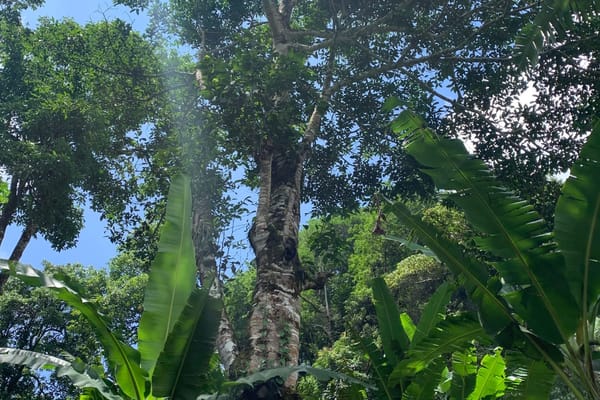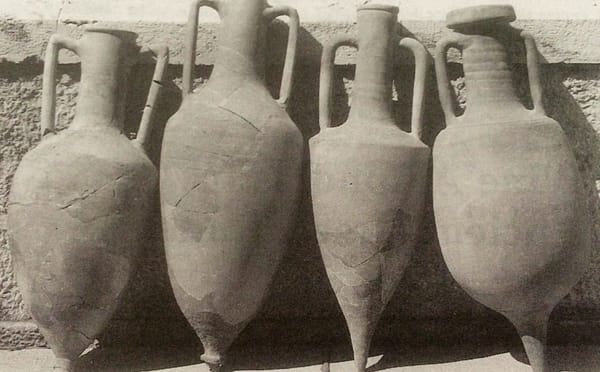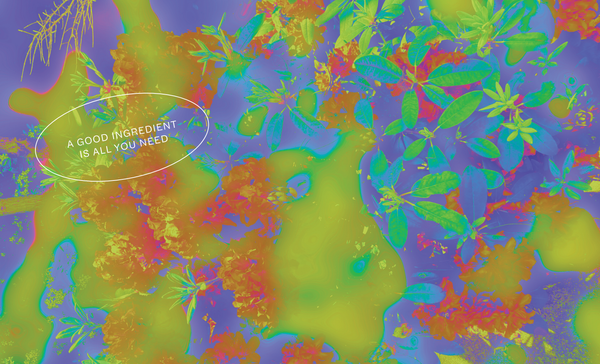November 2024 Subscription - Resisting 'enshittification' or how coffee escapes the monopsony wormhole

Small working with small
I remember the very first roast production Nate and I did for Luna. We were both working day jobs at the time, and the arrangement with our roaster friend down the street from our East Van apartment meant starting our 'Luna shift' after hours, starting production in the evening with the goal of completing everything before the night became early morning. Each Tuesday night since filled us both with adrenaline to get the work done, coffee roasted, bags packed, boxes carted back to our apartment (either by rolling cart or a middle of the night car share) to be shipped out the next day. One overnight production took us right through the night into the following morning, where the head roaster of the space we were renting from came in to start his shift, the 5am sun slicing between the window security bars like curtain hooks ready to pull us offstage for a poor time management performance. We officially outgrew the shared arrangement and needed to look for a space of our own.
We've always had a soft spot for smaller, single producers through the time we've been bringing Luna to life (end of this month will officially mark 7 years!). I mean, that's sort of what we identify as after all - We've coddled this thing, kept it small, kept it quality focussed above all else. The rush to grow is something we see all around us and sometimes we feel pressured by. It's very much a North American cultural norm to go big or go home, or 'if you're not growing, you're dying'. But here's the thing - I call bullshit. Some of the folks we admire in coffee the most aren't the biggest roasters or farmers, but rather, they took a conscious effort to build something with an unshakable foundation with the idea to let the right folks find them and create a little ecosystem that stands the test of time longer than any startup or IPO could. If you're small, you inherently have more permission to keep things true to your vision. That's why this month is an especially apt subscription box and one we're especially excited about - Both thematically, but also because these are genuinely cool coffees to be able to share with you.
Resisting 'enshittification' or how coffee escapes the monopsony wormhole
Almost in lockstep with the start of Luna, in 2017/2018, Ethiopia's sweeping and freeing changes to the legislation around who was allowed to export took hold, making a viable path for a single producer to be able to export and share their coffee with international buyers.
Mate Matiwos and Bekele Yutute are two such producers.
Before this liberalization, Mate and Bekele would have been taking their coffee fruit to a communal processing place (private or coop) blending their coffee with many other farmers, placing the fruit on raised drying beds and getting the same price, determined by the management. In a system like this, there's no room for creativity, no path to try a new process or strive for better quality and get a better price for your efforts. Whether a system like that is even specialty coffee could be up for debate (and I can see it going either way, there is nuance here!), but what is for certain is some folks wanted to do more, improve quality and form a community around excellence (insert Cup of Excellence dad joke here).
This framing of being craftspeople, working on making the best possible thing, and to be able to get that thing out to people who want to enjoy it, unencumbered from gatekeepers - it's pushing back on something you might have heard of called 'enshittification'.
Enshittification (alternately, crapification or platform decay) was initially coined by Canadian writer (science fiction writer, activist and journalist) Cory Doctorow two years ago. Originally in reference to digital things, its a pattern where online products and services decline in quality. Initially, vendors create high-quality offerings to attract users, then they degrade those offerings to better serve business customers, and finally degrade their services to users and business customers to maximize profits for shareholders. 'Enshittification' was selected as The American Dialect Society's 'word of the year' - Prestigious. Hilarious.
Doctorow advocates for two ways to reduce enshittification:
One is upholding the end-to-end principle, which asserts that platforms should transmit data in response to user requests rather than algorithm-driven decisions; and guaranteeing the right of exit—that is, enabling a user to leave a platform without data loss, which requires interoperability. These moves aim to uphold the standards and trustworthiness of online platforms, emphasize user satisfaction, and encourage market competition.
Its not a stretch to look at the lens of enshittification for physical products too, we’ve all had the pain of a company we love eventually grow and become, well, shittier and especially on the coffee producer side of things, this idea of things becoming crappier extends into something perhaps more nefarious - Something called a monopsony.
Both a monopoly and a monopsony describe situations where an entity controls a (so-called) free market. the difference lies in who is doing the controlling, the seller or the buyer. A monopoly is one seller and many buyers, while a monopsony is one buyer and many sellers. Where a monopoly controls a market by preventing competitors from selling a product, in a monopsony, the buyer holds all the power.
A clear, relevant example of monopsony is a coffee washing station that becomes the only option for farmers wanting to sell their crop, since it's the only one accessible to them; the downside of this is it can force a farmer to sell for less than they want to (or need to in order to cover their costs).
Up until 2018, if you were a farmer in Ethiopia, the chances that you were operating in a monopsony were extremely high, and if you were lucky you had two choices; either the coop where you could sell your coffee, or the private washing station, take your pick. With the two options (and sometimes only one), there wasn't much of a choice and ability to advocate for better pricing or the ability to separate your lot for export.
Coffee is, thankfully, one of the only places left that hasn't been completely sucked into the enshittification cycle (though not for lack of conglomerates trying, since coffee has historically been controlled by a small handful of import companies who are alive and well today).
There have never been more micro and nano roasters than there are today. There is also increasingly friendly legislation for coffee producers in many countries to be able to get their coffee out there, without the drag of relying on one single buyer.
I've mentioned this before, but there's a reason why folks in Huila Colombia for example are lightyears ahead - They've been able to reach far beyond the confines of a monopsony and instead, folks think of buyers of their coffees as one of many potential routes to get their coffee out into the world. This means inherently they have more bargaining power, more creative control, and a better ecosystem to work within.
So yeah, the idea of exporting a lot separated, with choice of who to sell to is a huge deal for folks like Mate and Bekele.
There's a bunch of ways we try to avoid getting ensnared in a monopsony. We don't install google analytics to follow you around on the internet after visiting our webshop, opting for more privacy respecting Fathom. We have a print zine that google can't mark as spam (though I've had unhinged nightmares about google wielding a box knife at the border to take a peak in the sub boxes lol). We get to reach you directly - An increasingly rare and special thing. We also get to be creative, in constantly testing different roast approaches with the goal of perpetual improvement with how a coffee shows when you brew it at your place. These are the reasons why we started Luna roasting at night in a shared space all those years ago, and it's why we're still at it today.
There are ways we can't avoid monopsony's though. You likely found us through IG and there's really no other option than Stripe for payment processing online no matter who you shop with. In a lot of ways, going out of our way to sidestep monopsony is going against the grain and in a lot of cases it's more friction for us, but we both think it's important to operate consciously in a world that's increasingly full of 'chokepoints'.
Crucially though, we want to encourage farmers who are able to step outside the usual systems they've been traditionally ensnared in, to do so - To share what they've been up to and connect with various small roasters, and in turn you. Frankly, *this* is how you get incredible coffees.
Bekele Yutute, his brother in law who helps manage his farm, and Mate Matiwos and other great folks in Bombe Bensa are building names for themselves, much in the same way we've begun to seek specific producer names like Nestor Lasso and Jhoan Vergara in Huila (of El Diviso and Las Flores respectively) due to their grit and ability to be fermentation alchemists. It's an astonishingly recent phenomenon where folks have shifted from only remembering and talking about a particular roaster, to seeking out a specific farmer's coffee, almost irrespective of who roasted it. This is an incredibly positive development, though it's still early days and the folks who are most recognized are generally by and large already affluent and were able to leverage their names through huge capital investment. What Nestor and Jhoan have in common with Bekele and Mate is that they come from coffee producing families and are passionate for trying new things & their want to be recognized on the world stage for excellent coffee. The fact that the first Cup of Excellence competition held for Ethiopia was only 4 years ago means there's a long bright road ahead. I want to live in a coffeeverse that celebrates and seeks Mate and Bekeles coffees in the same way that people clamour for coffees from the most affluent producers from Panama.
I think we'll get there, sooner than expected.
Luna is powered by Laura & Nate, two industry nerds from Vancouver, Canada. What you just read comes as a printed colour zine each month, alongside two coffees specifically sourced for subscribers. Join us next time!





